My latest read is Abandoned America: The Age of Consequences by Matthew Christopher. This is really a coffee table book as it is a pictorial tour of different ruins in America. Included next to the drawings are descriptions of the history of each place. I grew up in the Rust Belt, so I automatically think of abandoned factories when I think of deserted places, and yes, Christopher's book does contain plenty of pictures of industry's past, but what I found even more heartbreaking were the deserted theaters and prisons: theaters because of all of the great art that was once present and prisons because of the human cruelty that once took place in the cells and staircases. While I have seen many contemporary artists try to find beauty in American ruins, I truly enjoyed Christopher's exploration of time, history and place.
|
This happens to me every summer. I do great with my writing and submission goals during the end of May and June and then, when July hits, I seem to bury myself in mundane tasks -- like finishing the big stack of to-read books I have piled in our spare bedroom. And just in case I run out of books, I can walk three blocks to the local public library to restock my reading needs. No problem.
My latest read is Abandoned America: The Age of Consequences by Matthew Christopher. This is really a coffee table book as it is a pictorial tour of different ruins in America. Included next to the drawings are descriptions of the history of each place. I grew up in the Rust Belt, so I automatically think of abandoned factories when I think of deserted places, and yes, Christopher's book does contain plenty of pictures of industry's past, but what I found even more heartbreaking were the deserted theaters and prisons: theaters because of all of the great art that was once present and prisons because of the human cruelty that once took place in the cells and staircases. While I have seen many contemporary artists try to find beauty in American ruins, I truly enjoyed Christopher's exploration of time, history and place.
0 Comments
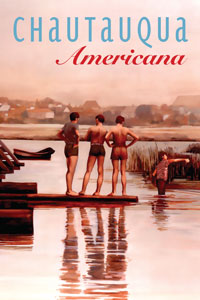 I'm recovering from a wonderful writers' festival that was held at Chautauqua this past weekend. My workshop leader was the energetic and enthusiastic Dorianne Laux, whose work I have admired for well over a decade. Since she is living on the West Coast, I never thought I would get a chance to meet her, so when I heard that she would be one of the poets at the annual Chautauqua Writers' Festival, I jumped at the chance to work with her. The energy I received from this weekend is pushing me back towards writing again, especially towards poetry, which has taken a back burner to my teaching and my prose writing. I also received the newest issue of Chautauqua with the thematic subject of Americana. Three of my poems, including a personal favorite "Why the Rain Gutters Rattled" appear in this issue, and I was thrilled to be included along some great writers (and friends) including Todd Davis, Gabriel Welsch, Clara Silverstein, and Lori Jakiela. I have admired the Chautauqua literary journal for years, and love the beautiful editions, so I am proud and excited to be included in its library of volumes. So, now that I have made a promise to myself to devote the summer to writing (I'm not teaching at all this summer, which is the first time that has happened in years), I want to make good on that promise and finish up some projects that have been sitting around my computer. I need to, as Dorianne Laux told us at the festival, make time for my art. 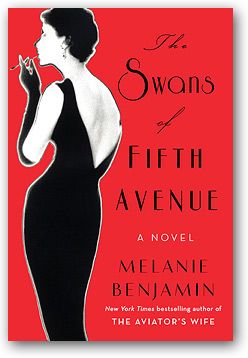 Warm temperatures are reminding me that I have not yet posted my summer reading list. Because of coursework, I have not completed as many books as I usually do this time of year, but I have included some gems below. The Swans of Fifth Avenue by Melanie Benjamin I love the work of Melanie Benjamin and her latest book is no exception. The Swans of Fifth Avenue follows Truman Capote and his escapades with the rich and glamorous women of 50's New York City. Exploring Capote's literary career, Benjamin also details his final days and his final work, an infamous article that destroys his friendships and in many ways, his life. I'm not usually fascinated with the lives of the rich and famous, but I love Benjamin's work, and of course anything written about Capote is always interesting. A great read! The Beautiful Unseen by Kyle Boelte In this slim memoir, author Kyle Boelte struggles to remember his brother, Kris, who committed suicide when Kyle was just 13. Interwoven in these snippets of memory, Boelte himself explores the landscape of San Francisco, where fog has impacted both the city's history and landscape. The metaphor of fog and memory may seem heavy handed, and in the hands of a less skilled author, I'm sure the writing would lapse into forced clichés. But Boelte's memoir is beautiful, its lyrical language drawing me into both the present fog and the haziness of memory. My only complaint is that the book was too short -- I feel I could have read on forever. Nelly Dean: A Return to Wuthering Heights by Alison Case I’ve said it before and I will say it again: I am skeptical of novels that retell the classics. I love the idea of retelling a classic story through the eyes of a minor character, but the end result is often far from stellar. Still, I have to admit that I enjoyed Alison Case’s reworking of Emily Bronte’s Wuthering Heights, where Nelly Dean, the faithful servant takes center stage. An interesting read. Alligator Candy by David Kushner Award-winning journalist David Kushner grew up in a time period when kids ran free, exploring the world outside their homes without fear, but also without the rigid scheduled play dates we see so much in today's world. One morning, however, when David was four years old, his brother Jon disappeared while traveling through a patch of woods on the way to the store. Jon's body was found a week later, horribly mutilated. In this memoir (which is very much also a work of journalism), Kushner reaches back into the past to recover the events that occurred before the murder, but also look at his life after the death of his brother. What the reader gets in a book that yes, could read as simply a book of true crime, is a memoir of how we face loss and grief, especially when the very worst happens. A great book, and probably one of the best I have read this year! Angels, Burning by Tawni O’Dell Angels Burning opens with a murder. A teenage girl's body is found in a sinkhole of an abandoned coal town (eerily similar to the real-life Centralia, a town infamous for its underground mine fire). Chief Dove Carnahan, who hides family secrets of her own, takes on the investigation. What follows is more than just a murder mystery. Yes, much of the plot revolves around Dove seeking to find who committed the murder. Readers of mysteries, however, may be a bit disappointed as the plot and subplots veer off into many different directions so that the book is more than just a whodunnit story. Instead, readers will be treated with an exploration of character development and physical setting. Some readers may think that O'Dell approaches her characters with only stereotypes in mind, but I found that she navigates the back roads and people of Pennsylvania with a refreshing eye, pointing out the grit, stubbornness, and yes, sometimes violence that harbors in the northern Appalachia landscape. 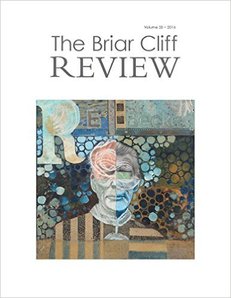 Somehow, I'm staring down at the end of the school year wondering, as I always seem to do, how I lost this semester. Still, with all the celebrations that seem to come during this part of the year, I'm taking time out to celebrate one of my favorite prose pieces, "Barefoot by Roadkill" which has been published in the most recent issue of The Briar Cliff Review. With its beautiful design, the journal is absolutely gorgeous. In an age where more and more work is being read online (that is not a bad thing -- I publish online as well, and often online work gets a much wider readership than work that is published in print), it's wonderful to have a work of art arrive in your mailbox. I'm so looking forward to taking time out of my schedule in the next week from grading final student papers and projects to read the entire issue from cover to cover. In other semester news, I'm very late with this thank you, but I need to mention how grateful I am that the editors of Rust+Moth accepted my poem, "Renaming the Constellations" which was published this past spring. You can read the poem, here, in the journal's spring issue. 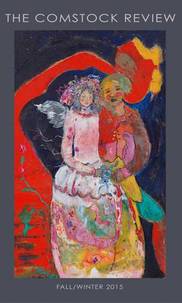 School has started and the semester is in full swing! Somehow, even though I live in the Snow Belt, we dodged the bullet with this last snow storm, and although it's been cold, we haven't had our usual severe winter weather. I'm not sure if we are going to continue to have a mild winter or if the horrific weather is simply coming later... For now, however, I've been enjoying the latest issue of The Comstock Review where I'm happy to report that my poem, "Flypaper" won third place in the journal's annual poetry contest. The award is a wonderful honor, of course, but I'm even more excited by the fact that one of my favorite poets, Allison Joseph, was the judge! My poem joins other wonderful work by Steven Lautermilch (who won first prize for "Is the Fish,") and Justin Hunt (who won second prize for "Two West and a Half South"). Writing, so far this year, has been a bit on a slow side. I have yet to write a new poem, and I have only drafted a few prose pieces. Usually, January is a productive writing month for me, so I'm not quite sure what is going on, but I hope to remedy the situation soon, and get back on schedule. I am not sorry to see 2015 go. Last year was a year of losses, so in many ways, I feel like I am starting the new year emotionally drained. Reading the daily news headlines doesn't help much. And even though we have had warmer than usual temperatures for this region for this time of year, I know we are entering Northern Appalachia's time of gray where I probably won't see the sun anytime soon.
Still, I'm trying to highlight the great points of last year. I was granted a sabbatical and started taking classes in an online MFA program. I had 19 acceptances this past year. I got poems published in some great journals. My poem, "Yellowjackets" was published in Ted Kooser's American Life in Poetry series. (Kooser has been a favorite of mine for a long time, so it was quite an honor to be chosen. I also had more prose pieces published, and am looking forward to seeing one of my favorite pieces, "Barefoot by Roadkill" in print in The Briar Cliff Review. I haven't really made concrete resolutions in the past few years. Last year, I did join the GoodReads Challenge, giving myself a goal of 100 books to read in one year. I actually read 186. That probably seems like a lot, but the reality is that I usually read over 200 books a year. Still, I set myself another modest goal of reading 150 books in 2016. I would like to write more reviews. I used to write more reviews (both for my personal website and for journals). My last review, a commentary on River Bound by Brian Simoneau, was published in Gravel a few weeks ago. Still, I know that writing reviews is a time-consuming task, and I'm not sure when I will find time in the upcoming months. This is what is happening: I'm taking more coursework towards my MFA. I am also teaching a brand new course at JCC (Well, the course is brand new for me). For the first time in years, I don't have any poems out on the market, and I really would like that to change. But first, I actually have to write some new poems, and I haven't written a brand new poem in months. So much to consider. 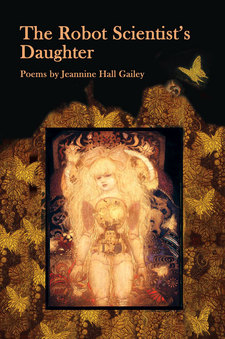 I have been counting down my top poetry picks for years, so as tradition dictates, here is my list of my best poetry collections of 2015. The Robot Scientist’s Daughter by Jeannine Hall Gailey (Mayapple Press) Gailey's fourth full-length collection of poetry is part coming-of-age exploration of the poet's life growing up in Oak Ridge, Tennessee, part critical look at nuclear history in America. It’s her best book yet! The Arranged Marriage by Jehanne Dubrow (University of New Mexico Press) In her newest collection, Dubrow intertwines narrative prose poems of her mother’s violent past with ekphrastic poems all the while showing the reader that the past never truly leaves us no matter how much we try to paint our lives in linear lines. Mendeleev’s Mandala by Jessica Goodfellow (Mayapple Press) In Mendeleev’s Mandala, Goodfellow sifts through the intersections of science, mythology and everyday life to find wonderment in both the ordinary and the unknown. Dark Matter by Christine Klocek-Lim (Aldrich Books) In her newest collection of poetry, Klocek-Lim intertwines the world of astronomy with human emotions and experiences recording happiness and sorrow, discovery and loss. Grayling by Jenifer Browne Lawrence (Perugia Press) Winner of Perugia Press’s annual contest, Lawrence’s collection, Grayling, explores the rural coastlines of the West Coast intertwining stories with surreal images and scenes. More Money Than God by Richard Michelson (Pitt Poetry Series) With a lighthearted tone that may seem out of place when exploring tragedy (but isn’t, at least with the way Michelson masters both comic and poetic voice) , this book examines the Jewish experience in America along with exploring personal loss and joys. Iconoscope: New and Selected Poems by Peter Oresick (Pitt Poetry Series) Iconoscope: New and Selected Poems gathers together Oresick’s work from two previous collections as well as newer poems that have not yet been seen in book form. While I enjoyed the new work, my favorite part was revisiting the selections from Definitions (1990) that explore a familiar landscape of the blue collar world. The Well Speaks of Its Own Poison by Maggie Smith (Tupelo Press) To say that poet Maggie Smith is updating the fairy tale in her newest collection of poetry may be misleading as her work turns the common clichés of children’s stories into surreal and beautiful tales. Our Portion: New & Selected Poems by Philip Terman (Autumn House Press) It would be a mistake to simply summarize Terman's work as poems that explore the contemporary Jewish experience in America. Yes, it is true, that in this newest book, the importance of Terman's Jewish identity is highlighted. Yet, it is just as easy to find the themes of exploration of family relationships to the landscape around us. This collection gathers together work from four previously published books along with 23 new poems. Beauty Strip by William Kelley Woolfitt (Texas Review Press) Woolfitt explores the exploited landscape of Appalachia in his first full length collection of poetry. If there is any beauty to be found in the worn debris of a tired natural world, he finds it, capturing stories and history in rich, lyrical language. I'm more of a reader than a writer -- I've said this over and over again. So, here is my list of best reads of 2015. All of these books (to my knowledge) have been published in either 2015 (or late 2014). 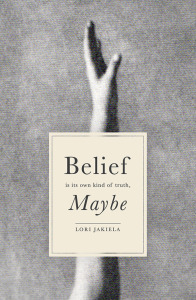 Belief Is Its Own Kind of Truth, Maybe by Lori Jakiela (Memoir) In her third memoir, Lori Jakiela intertwines the story of her journey of looking for her birth parents with an exploration of her relationship with her adopted mother and her own children. Dead Wake by Erik Larson (History) Erik Larson’s latest book thoughtfully investigates the last trip of the Lusitania before it was torpedoed and sunk by a German U-boat. Featuring an interesting cast of characters, Dead Wake is a must read for history buffs everywhere! H is For Hawk by Helen Macdonald (Memoir/Nature) When Helen Macdonald’s father dies suddenly, Helen, as she mourns, turns her attention to raising a goshawk, long since considered one of nature’s most fierce predators. What she learns is not only how we survive grief, but also how we navigate life. The Determined Heart: The Tale of Mary Shelley and Her Frankenstein by Antoinette May (Novel) While I don’t usually like fictional retellings of authors, Antoinette May’s examination of the life of Mary Shelley is both a fascinating (and fun!) read. The Soul of an Octopus by Sy Montgomery (Nature/Science) In her newest book, naturalist Sy Montgomery explores the emotional and physical universe of the octopus, all the while questioning the very way mankind defines intelligence and spirituality. American Ghost: A Family’s Haunted Past in the Desert Southwest by Hannah Nordhaus (Memoir/History) Hannah Nordhaus’s newest book is part ghost story, part exploration of family history – a haunting read (no pun intended) about the way we view the past. Bone Gap by Laura Ruby (Young Adult Lit) Laura Ruby’s surreal Midwestern fairytale has a happy ending that is not forced, and is, in many ways, believable in spite of the author’s use of magical realism. One of the best young adult books I have read this year! Finding Abbey by Sean Prentiss (Memoir/Travel) Sean Prentiss looks for the hidden grave of nature writer Edward Abbey in a book that not only explores the life of the elusive literary figure, but also catalogs a young writer’s own self-discovery. The Blondes by Emily Schultz (Novel) I thought that I had every apocalyptic/dystopian book worth reading, so I admit that I was a bit skeptical when I approached The Blondes, a work where all blonde women are becoming with a rabies-like illness. Still, I loved this book – perhaps because the storyline reads more like a satire about women’s issues than a work of apocalyptic literature. The World Is On Fire: Scrap, Treasure, and Songs of the Apocalypse by Joni Tevis (Essays) In the last few years, I have fallen in love with the personal essay, and Tevis’s collection, that explores our society’s infatuation with the end of the world, has become one of my favorite reads. Journeying through landscapes that include the atomic test sites in the American Southwest to the mazes of staircases found in the Sarah Winchester home, Tevis records what it means to have suffered loss. Final grades have been turned in! The new Star Wars movie has been seen (no spoilers here, but I was pleasantly surprised. I felt like I was a kid again!). Two new poetry books have been read!
So far, this is how I have been spending my Holiday Break, which officially started this past Friday. We also had our first major snowstorm of the year. Today, however, it's sunny outside, and I think what snow is on the ground will be gone by tomorrow. In fact, local weather stations are calling for a warm Christmas. A very warm Christmas, they are saying, One for the record books. I have to admit that I will miss snow for Christmas. But I won't miss navigating icy roads in order to visit family and friends. In other news, December in general has been full of surprises. I got acceptances from both Briar Cliff Review and Chautauqua -- both journals I admire a great deal. And in between grading final papers and exams, I read the newest issues of Tahoma Literary Review, which includes great work by some of my favorite poets including Joe Wilkins, Gerry LaFemina and Martha Silano. My poem, "Tips for Young Girls Hoping to Avoid the Rapture" is also included. Now, back to my regularly scheduled pre-holiday festivities. I will return after December 25 with my "Best of Reading Lists" for the year. 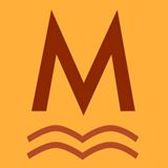 Somehow, we avoided the major snowstorm that hit Detroit and Chicago, so yes, with a wet yard (and not a snow-covered yard), I can say that it's mud season here! However, more importantly, the wonderful editors of Mud Season Review have featured five of my poems in their November issue. I discovered MSR last year, and have eagerly waited every month for the new work. I'm very thankful to the editors for publishing these poems, all which navigate ideas of salvation in the natural world. The direct link to the journal is here. |
AuthorI am a poet and professor from rural Pennsylvania. This page is dedicated to my publishing news and events; for book reviews published online go to the Reviews tab above. For my own personal reviews, explore the Book Picks tab. Archives
December 2017
Categories
All
|
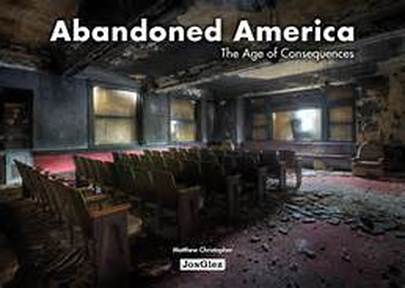
 RSS Feed
RSS Feed
